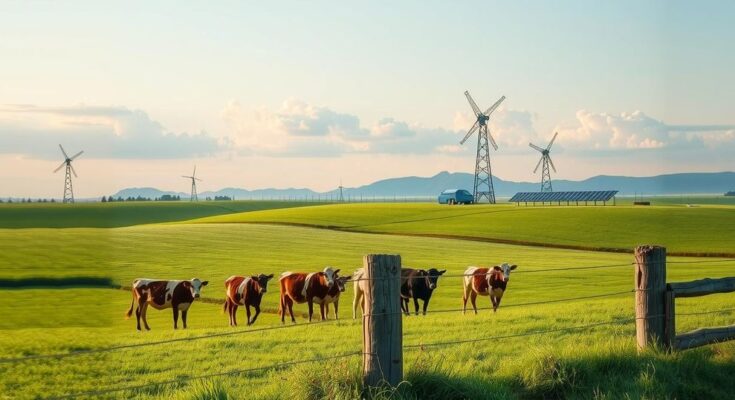A new vaccination initiative for Kenyan livestock faces backlash due to misinformation and conspiracy theories, with farmers expressing fears of foreign influence and safety issues. The government aims to vaccinate millions to control diseases vital for the livestock sector. Reassurances from officials, including claims of local vaccine production, struggle against public distrust, necessitating effective communication to foster acceptance.
An initiative to vaccinate livestock in Kenya is set to launch amid significant opposition from farmers fueled by misinformation. The government insists the vaccination will not incur costs for farmers, as it is financing the program. However, local rancher Robert Nkukuu reports that discussing vaccination has become fraught with tensions, fearing backlash from the community, emphasizing the need for farmers to remain silent on the topic.
The Kenyan government aims to vaccinate 22 million cattle and 50 million goats and sheep over the next three years, intending to raise the current vaccination rate from 10% to 85% to enhance export eligibility for livestock products. President William Ruto argues that vaccinations are essential for curbing diseases such as foot-and-mouth and peste des petits ruminants, crucial for the livestock industry’s growth.
Despite the government’s reassurances, conspiracy theories linking Microsoft co-founder Bill Gates to the vaccination initiative have proliferated. Critics believe Gates is behind the program, referencing his discussions about cattle vaccinations for methane reduction. However, officials from Kenya’s agriculture ministry confirm that Gates has no ties or funding for the vaccination program.
Opposition figures have exploited public skepticism, alleging that vaccines could genetically modify livestock, which has prompted widespread unrest. Kalonzo Musyoka, an opposition leader, has claimed that the plan is a misguided attempt by the government to impose a foreign agenda without proper transparency regarding the vaccine’s details.
In response to skepticism, experts such as Professor Ermias Kebreab clarify that the vaccines will not alter livestock DNA. President Ruto has publicly dismissed the concerns surrounding vaccinations and tends to attribute opposition to misinformation and irrational fears among the community, stating, “All of us who have been vaccinated, has anyone stopped farting?”
Concerns about communication deficits from the government compound the issue, as recent tax increases have fostered widespread discontent. The Kenya Veterinary Association has called for the vaccination initiative to be paused in favor of a public education campaign, arguing that public distrust undermines the vaccination effort as a whole.
Despite ongoing outbreaks of foot-and-mouth disease necessitating vaccination, some farmers remain staunchly opposed. David Tiriki, a livestock owner, expresses fears of external influences and potential harm to his animals. However, there are farmers like Ngemu Musau who find merit in the initiative but advocate for greater transparency and assurance regarding vaccine safety.
The article discusses an upcoming government initiative in Kenya to vaccinate livestock against various diseases, which has sparked considerable controversy and resistance among farmers. The initiative, announced by President William Ruto, aims to make livestock products eligible for export by increasing vaccination rates significantly. However, conflicting information and conspiracy theories relating to the vaccination’s purpose have fueled public distrust, particularly among local ranchers who fear foreign interference and potential harm to their livestock.
In conclusion, the new vaccination initiative in Kenya reflects a complex interplay of government goals, public skepticism, and misinformation. Despite the potential benefits for livestock health and export opportunities, farmers’ fears and conspiracy theories surrounding the program pose significant challenges. To ensure the program’s success, enhanced communication, public education, and transparency regarding vaccine safety are imperative.
Original Source: www.bbc.com




